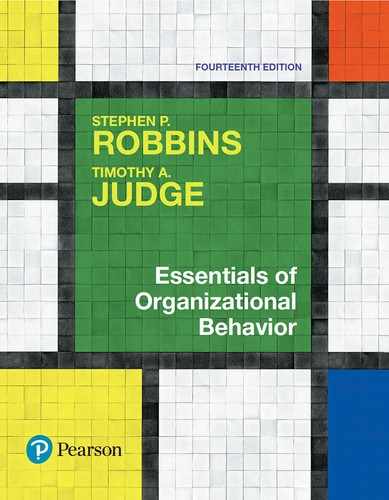Bases of Power
Where does power come from? What gives an individual or a group influence over others? We answer by dividing the bases or sources of power into two general groupings, formal and personal, and breaking each of these down into more specific categories.2
Formal Power
Formal power is based on an individual’s position in an organization. It can come from the ability to coerce or reward, or from formal authority.
Coercive Power
The coercive power base depends on the target’s fear of negative results from failing to comply. On the physical level, coercive power rests on the application, or the threat of application, of bodily distress through the infliction of pain, the restriction of movement, or the withholding of basic physiological or safety needs.
At the organizational level, A has coercive power over B if A can dismiss, suspend, or demote B, assuming B values the job. If A can assign B work activities B finds unpleasant, or treat B in a manner B finds embarrassing, A possesses coercive power over B. Coercive power comes also from withholding key information. People in an organization who have data or knowledge others need can make others dependent on them.
Reward Power
The opposite of coercive power is reward power, with which people comply because it produces positive benefits; someone who can distribute rewards others view as valuable will have power over them. These rewards can be financial—such as controlling pay rates, raises, and bonuses—or nonfinancial, including recognition, promotions, interesting work assignments, friendly colleagues, and preferred work shifts or sales territories.3
Legitimate Power
In formal groups and organizations, probably the most common access to one or more of the power bases is through legitimate power. It represents the formal authority to control and use organizational resources based on the person’s structural position in the organization.
Legitimate power is broader than the power to coerce and reward. Specifically, it includes members’ acceptance of the authority of a hierarchical position. We associate power so closely with the concept of hierarchy that just drawing longer lines in an organization chart leads people to infer the leaders are especially powerful.4 In general, when school principals, bank presidents, or army captains speak; teachers, tellers, and first lieutenants usually comply.
Personal Power
Many of the most competent and productive chip designers at Intel have power, but they aren’t managers and they have no formal power. What they have is personal power, which comes from an individual’s unique characteristics. There are two bases of personal power: expertise and the respect and admiration of others. Personal power is not mutually exclusive from formal power, but it can be independent.
Expert Power
Expert power is influence wielded as a result of expertise, special skills, or knowledge. As jobs become more specialized, we become dependent on experts to achieve goals. It is generally acknowledged that physicians have expertise and hence expert power: most of us follow our doctor’s advice. Computer specialists, tax accountants, economists, industrial psychologists, and other specialists wield power as a result of their expertise.
Referent Power
Referent power is based on identification with a person who has desirable resources or personal traits. If I like, respect, and admire you; you can exercise power over me because I want to please you.
Referent power develops out of admiration of another and a desire to be like that person. It helps explain, for instance, why celebrities are paid millions of dollars to endorse products in commercials. Marketing research shows people such as LeBron James and Tom Brady have the power to influence your choice of athletic shoes and credit cards. With a little practice, you and I could probably deliver as smooth a sales pitch as these celebrities, but the buying public doesn’t identify with us. Some people who are not in formal leadership positions have referent power and exert influence over others because of their charismatic dynamism, likability, and emotional appeal.
Which Bases of Power Are Most Effective?
Of the three bases of formal power (coercive, reward, legitimate) and two bases of personal power (expert, referent), which are most important? Research suggests the personal sources of power are most effective. Both expert and referent power are positively related to employees’ satisfaction with supervision, their organizational commitment, and their performance, whereas reward and legitimate power seem to be unrelated to these outcomes. One source of formal power, coercive power, can be damaging.
Referent power can be a powerful motivator. Consider Steve Stoute’s company, Translation, which matches pop-star spokespersons with corporations that want to promote their brands. Stoute has paired Justin Timberlake with McDonald’s, Beyoncé with Tommy Hilfiger, and Jay-Z with Reebok. Stoute’s business seems to be all about referent power. The success of these well-known companies attests to Stoute’s expectation that the buying public identifies with and emulates his spokespersons and therefore thinks highly of the brands they represent. Stoute’s business seems to be all about referent power, using the credibility of artists and performers to reach youth culture.5
